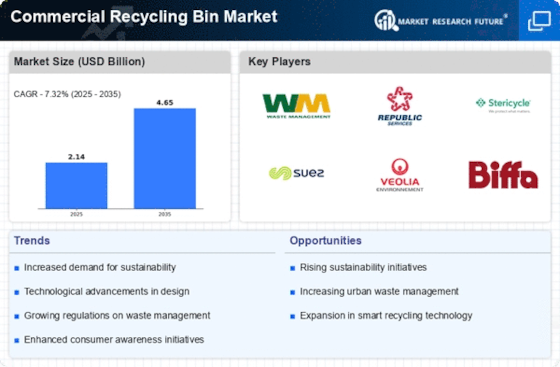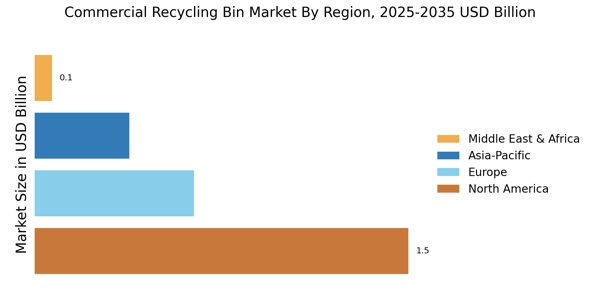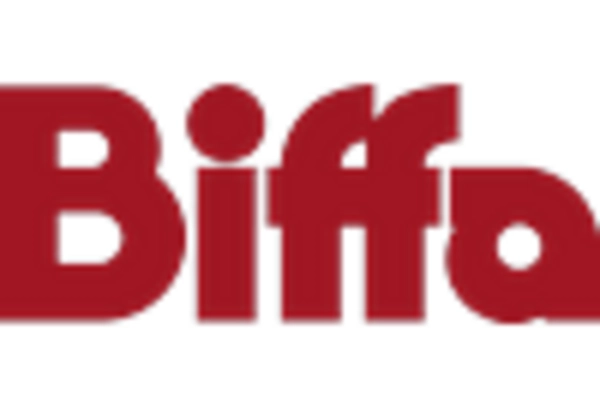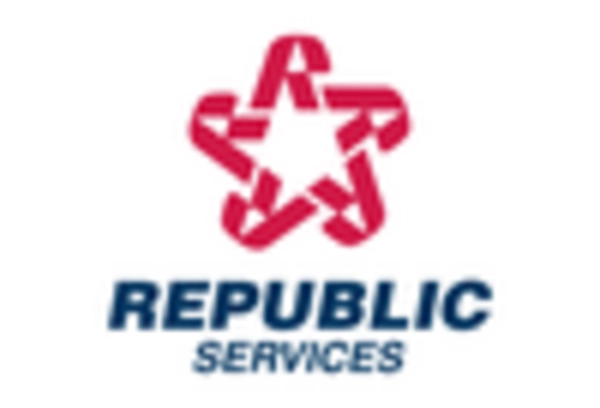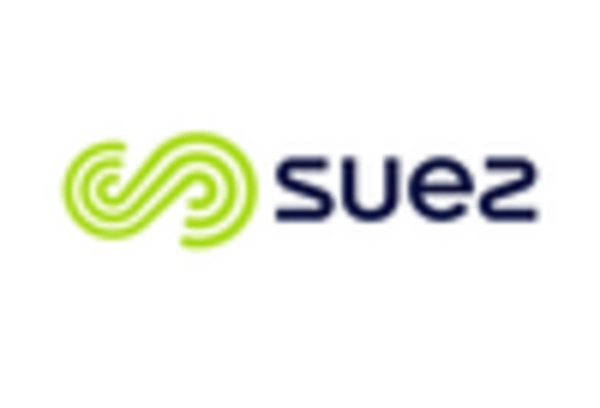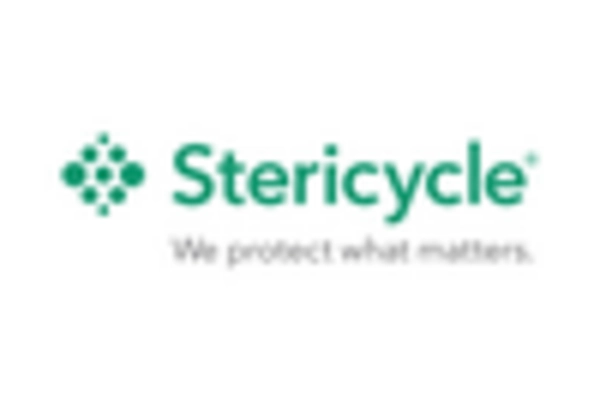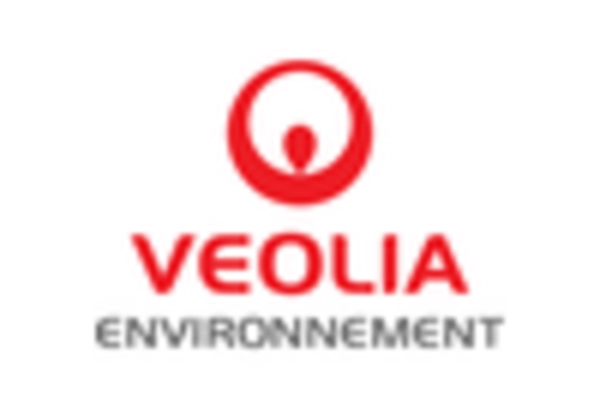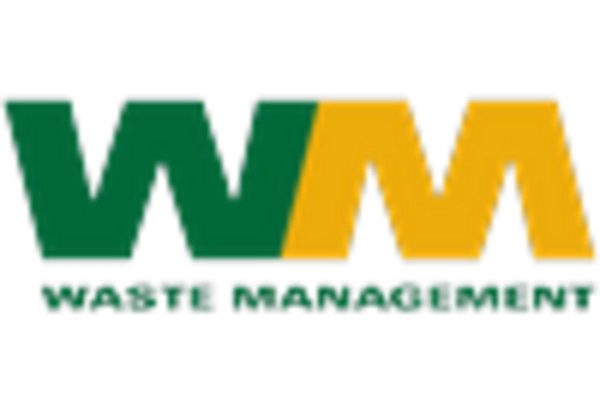Technological Innovations
The commercial recycling bin Market is witnessing a wave of technological innovations that enhance the efficiency and effectiveness of recycling processes. Advanced features such as smart sensors, compacting mechanisms, and user-friendly designs are being integrated into recycling bins. These innovations not only improve the user experience but also optimize waste collection and sorting processes. For example, smart recycling bins equipped with sensors can monitor fill levels and notify waste management services when they need to be emptied. This technology reduces operational costs and increases recycling rates. As businesses seek to leverage these advancements, the demand for technologically advanced commercial recycling bins is expected to rise, potentially reshaping the market landscape.
Consumer Awareness and Demand
The Commercial Recycling Bin Market is also driven by rising consumer awareness regarding environmental issues. As public consciousness about waste management and recycling grows, consumers are increasingly demanding that businesses adopt sustainable practices. This shift in consumer behavior is prompting companies to invest in visible recycling solutions, such as well-designed commercial recycling bins. Market data suggests that businesses that actively promote their recycling efforts can enhance customer loyalty and attract new clientele. The integration of aesthetically pleasing and functional recycling bins into commercial spaces is becoming a key differentiator, as consumers prefer to engage with brands that demonstrate a commitment to sustainability.
Corporate Sustainability Goals
The Commercial Recycling Bin Market is significantly influenced by the growing emphasis on corporate sustainability goals. Many organizations are setting ambitious targets to reduce their carbon footprint and enhance waste management practices. This trend is particularly evident in sectors such as retail, hospitality, and manufacturing, where companies are increasingly integrating recycling initiatives into their operational strategies. The demand for commercial recycling bins is expected to rise as businesses seek to meet these sustainability objectives. Reports indicate that companies with robust recycling programs can reduce waste disposal costs by up to 30%, making the investment in recycling bins not only environmentally responsible but also economically advantageous.
Increased Environmental Regulations
The Commercial Recycling Bin Market is experiencing a surge in demand due to heightened environmental regulations. Governments are implementing stricter waste management policies, compelling businesses to adopt sustainable practices. For instance, regulations mandating recycling in commercial establishments are becoming commonplace, leading to an increased need for efficient recycling bins. This regulatory pressure not only encourages businesses to comply but also fosters a culture of sustainability. As a result, the market for commercial recycling bins is projected to grow, with estimates suggesting a compound annual growth rate of around 5% over the next few years. Companies that invest in compliant recycling solutions are likely to enhance their brand image and appeal to environmentally conscious consumers.
Corporate Social Responsibility Initiatives
The Commercial Recycling Bin Market is increasingly influenced by corporate social responsibility (CSR) initiatives. Companies are recognizing the importance of demonstrating their commitment to environmental stewardship as part of their CSR strategies. This recognition is driving the adoption of commercial recycling bins as a means to showcase sustainable practices. Organizations that actively engage in recycling initiatives not only contribute to environmental conservation but also enhance their reputation among stakeholders. Market analysis indicates that businesses with strong CSR programs can experience improved employee morale and customer satisfaction. Consequently, the demand for commercial recycling bins is likely to grow as companies strive to align their operations with socially responsible practices.


